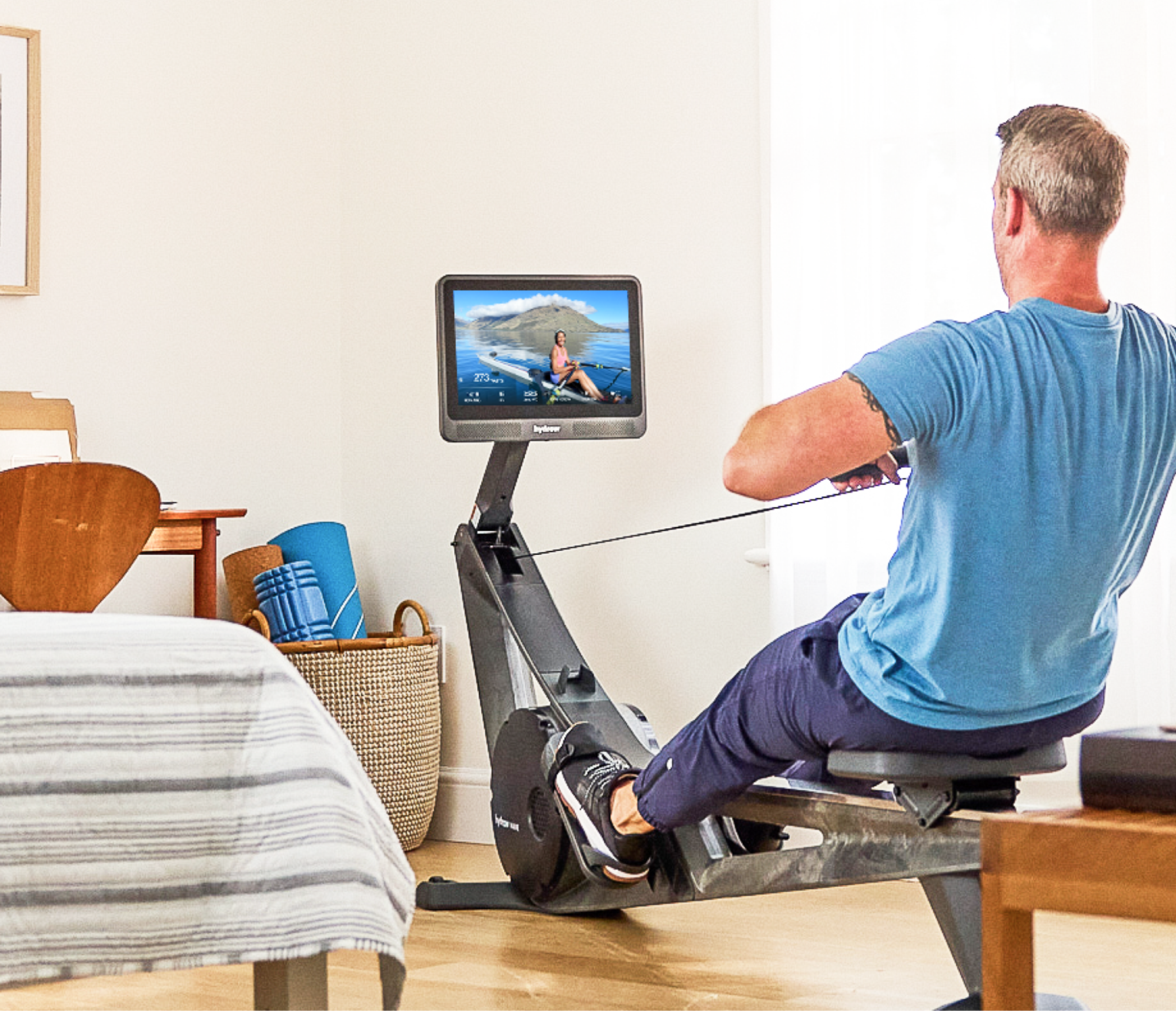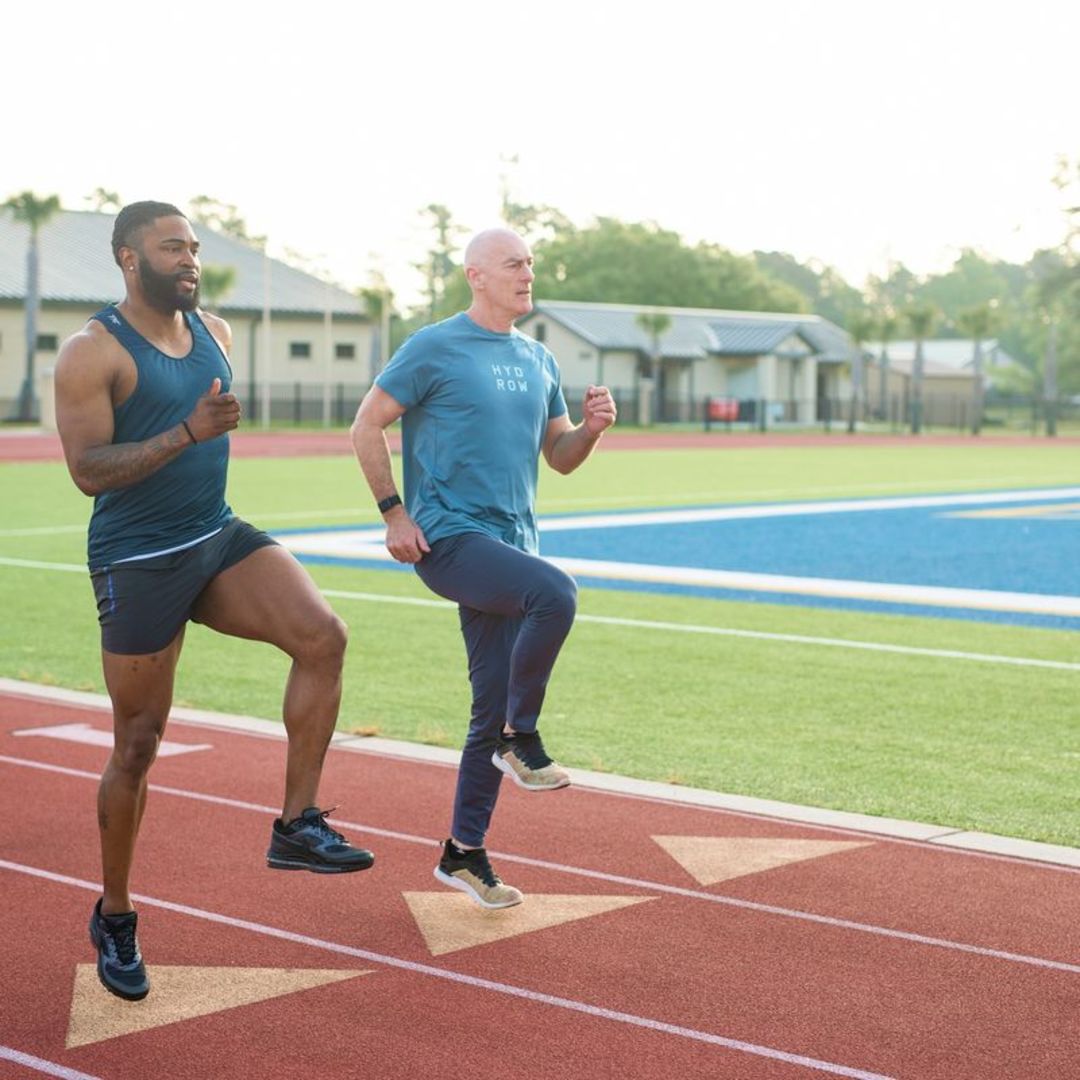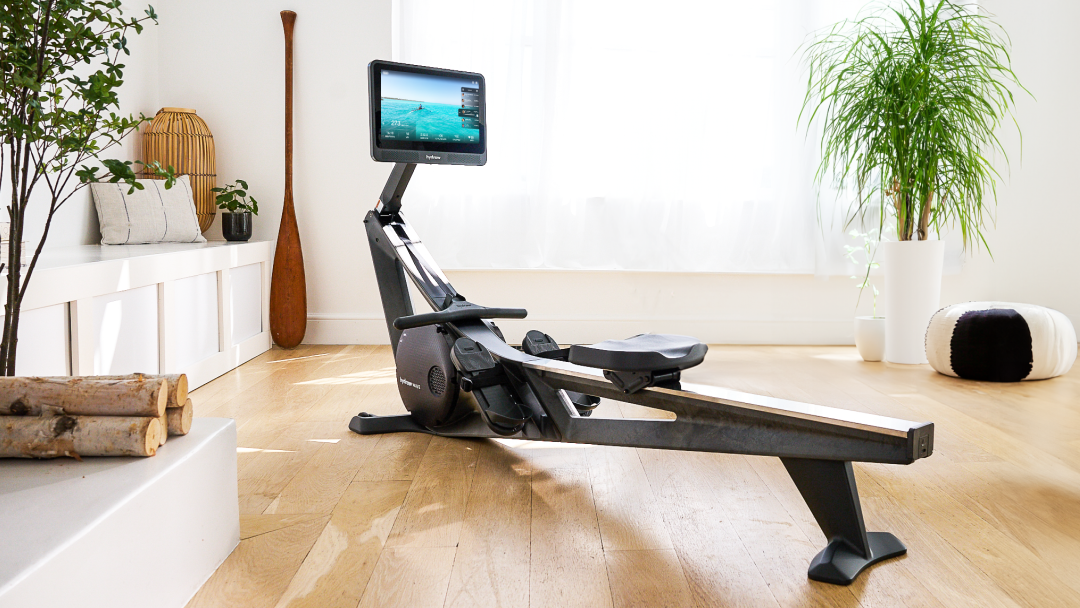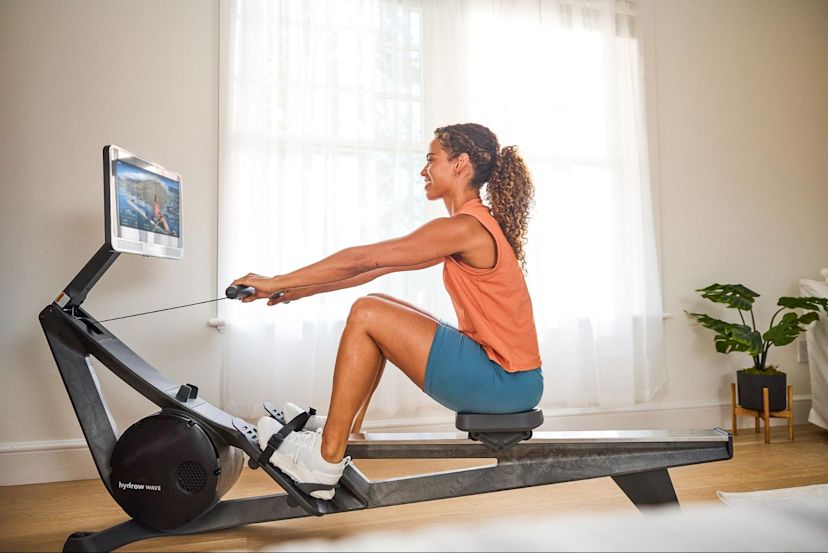The 7 Best Exercises for Heart Health and How to Get Started

Exercise and diet can have a powerful impact on heart health. Participating in regular aerobic exercise can prevent risk factors related to many cardiovascular diseases, which can lead to heart attacks, heart failure, or a stroke.
Looking to incorporate exercise into your routine to do your heart some good? Read on to learn:
Let’s get started!
Why is exercise good for heart health?
Your heart is a muscle, so similar to other muscles in your body, making it work is the best way to strengthen it over time.
When you do aerobic exercise, you repeatedly move large muscle groups. In response, your breathing gets quicker and your heart pumps faster and harder to get more blood flowing to the working muscles.
The blood from your heart then “picks up” oxygen from the lungs and carries it to the working muscles via smaller blood vessels that widen during exercise. Your blood also removes deoxygenated blood and lactic acid, all in an effort to keep the muscles moving.
With a regular exercise regimen, you will become stronger and fitter regardless of your age and weight. While any aerobic exercise is better than none, a minimum of 150 minutes per week of moderate to vigorous activity has been shown to have a significant influence on overall health.
Recent publications from the American Heart Association journal Circulation found people averaging 66 years of age who met these minimum exercise guidelines were 22% to 31% less likely to die from cardiovascular disease. Furthermore, it was found that those who doubled or quadrupled the recommendation of 150 minutes of exercise per week had a 27% to 38% lower risk of heart disease.
The 7 best exercises for heart health
The first step to integrating regular exercise into your daily life is determining which type of activity you would like to do. You are more likely to stick to a routine if you pick an aerobic exercise you enjoy and can do regularly.
Again, the idea is to achieve a minimum of 150 minutes of moderate- to high-intensity exercise per week. This can be completed continuously for larger periods of time, such as 30 minutes per day five days a week. Or, if you’re short on time, you can exercise in shorter 10-minute bouts throughout the day. Work with the time you have — either of these approaches is equally beneficial for a healthy heart.
Additionally, planning when you’ll work out ahead of time can help you create a consistent exercise routine, as can adding a social element to working out by inviting a friend.
Let’s take a look at some great activities for heart health that could work for you, including:
Rowing
Brisk walking
Jogging or running
Swimming
Cycling
Jump rope
Circuit training
We’ll dig in more on each workout type below:
1. Rowing
Rowing is a full-body yet low-impact activity that is easy on your joints. Working 86% of your muscles in a single stroke, rowing is considered both an aerobic and strength exercise. With so many muscles engaged at once, it will give your heart and lungs a better workout, too!
Working out on a rowing machine can be completed at a moderate to vigorous pace determined by your desired intensity. For example, you can row at a steady pace or compete in high-intensity interval training (HIIT) where you mix short, high-intensity bursts of effort with shorter, low-intensity rests.
The ease of movement on your joints, the variety in workout styles, and the large number of muscles moving during this exercise provide an opportunity to achieve more health benefits in a shorter amount of time.

Cardio and Strength, Combined
Burn calories and build muscle with a Hydrow rowing machine.
2. Brisk walking
Going for a brisk walk is an easy way to integrate moderate-intensity exercise into your lifestyle, especially if you’re struggling to find the time in your day to work out. Try commuting to work by foot (or at least part of it!) or meeting up with a friend for a walk in your neighborhood.
Again, if you’re short on large chunks of time, you can try stepping out of your house or office for occasional 10-minute walks throughout the day. Not only will you work toward your daily dose of physical activity, but walking is a great way to boost your energy from moving your muscles and elevating your heart rate.
3. Jogging or running
Jogging and running primarily work the large muscles in your lower body. These aerobic exercises are completed at a vigorous intensity, especially if you’re completing a HIIT-style workout.
You can choose to take your workout outdoors and pound the pavement outside, or work out on a treadmill or elliptical. Similar to walking, incorporating running into your commute can be a great way to sneak in some cardio, particularly if your workplace has shower and locker room facilities.
With no equipment necessary and larger muscles engaged, running provides an opportunity to get a no-fuss heart-healthy workout in.
4. Swimming
Swimming is a full-body, low-impact aerobic exercise. While lying prone for swimming does place less demand on the heart, this type of workout does still benefit your heart health.
The more proficient your swimming stroke, the more aerobic benefits you will experience, as this can dictate the intensity of your workout.
If you enjoy swimming and have access to a pool or a lake, swimming can be a great cardiovascular activity to strengthen your heart.
5. Cycling
Cycling is a predominantly lower-body aerobic activity. As such, you may have to complete this workout for longer periods of time to get the same benefits as a full-body workout such as rowing.
With cycling, the faster and harder you pedal, the more cardiovascular benefits you experience. The pedaling motion engages large leg muscles and incorporates some resistance training as well.

What’s your fitness style?
Take our quiz and receive a customized 14-day training program.
If you’re comfortable biking outdoors, you can get your daily dose of exercise by biking to work. In some cases, riding a bike to work is faster than sitting in traffic and cheaper than paying for gas and parking!
6. Jump rope
Jump rope is a full-body aerobic workout. There is a good reason Jump Rope for Heart became a fundraising event for heart associations around the world! It gets children moving and teaches them the importance of a healthy heart.
Don’t be fooled, though — jumping rope is not just for kids. It’s a vigorous exercise that actively recruits leg muscles and engages the core, back, and arms.
Generally speaking, this is an accessible, effective workout with big cardiovascular benefits that can be done in a relatively short amount of time.
7. Circuit training
Circuit training builds full-body muscular strength and endurance by moving through a variety of exercises. Because circuit training is a traditionally HIIT-style workout, shorter rests between exercises will keep your heart rate elevated.

Explore Hydrow’s library of Circuit Training workouts from around the world.
Additionally, changing exercises more frequently throughout your workout can allow you to work harder in each interval, keeping your heart rate elevated without placing extra demands on it. Whether you’re doing strength training or cardiovascular exercises, circuit training workouts have some massive benefits.
How to keep yourself safe when doing exercises for heart health
Starting something new is exciting, but it’s important to start slowly, listen to your body, and gradually build on each exercise session to avoid injury or extreme fatigue.
It is recommended to increase your workout duration by 10% each week. For example, if you are walking 15 minutes every day (105 minutes a week), you should aim to increase that to a total of 115 minutes per week.
We recommend warming up before your workout and cooling down after your workout to prevent muscle strain and give your heart time to adjust to the new exercise. Be sure to drink water before, during, and after your workout as well to stay hydrated.
Row your way to better heart health with Hydrow
Consistent exercise is key to maintaining a healthy heart. Rowing machines such as Hydrow can provide one of the best exercises for overall fitness and health, along with a diverse library of low-impact, full-body aerobic rowing workouts led by world-class Athletes.
Owning your own indoor rowing machine also makes squeezing in heart-healthy exercises a breeze, with shorter workouts needed to get the same bang for your buck as other types of workout equipment.
Go get that heart pumping, and check out Hydrow today!

Explore Hydrow
Learn more about how you can transform your fitness routine with a rowing machine.












